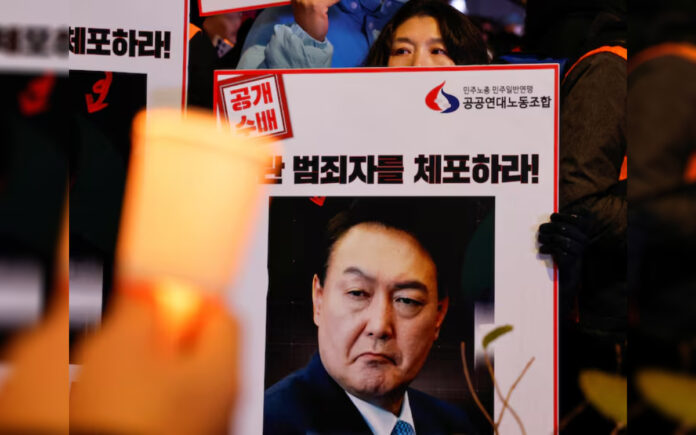Seoul: South Korean President Yoon Suk Yeol, along with several cabinet ministers, military commanders, and senior police officials, is under criminal investigation for his failed attempt to impose martial law. Prosecutors, the police, and the Corruption Investigation Office for High-ranking Officials (CIO) have initiated probes, focusing on allegations of insurrection, abuse of power, and other serious charges.
Key Details of the Investigation
Who Is Under Investigation?
The investigations target a wide range of individuals, including:
- President Yoon Suk Yeol
- Interior Minister Lee Sang-min
- Former Defense Minister Kim Yong-hyun
- Army Chief Park An-su, designated as martial law commander
Other key figures include the chiefs of the Capital Defence Command, the Special Warfare Command, the Defence Counterintelligence Command, and six military generals. Additionally, senior police officials, including Police Chief Cho Ji-ho, are accused of involvement in the martial law plan.
Investigators have requested a travel ban for Kim and the 10 military commanders implicated in the case.
Scope of the Investigations
The Supreme Prosecutors’ Office has established a special investigation bureau, marking the first such effort since the 2016 corruption scandal involving former President Park Geun-hye. The team, composed of prosecutors and military investigators, will conduct a comprehensive probe.
The national police agency has also launched its investigation, deploying approximately 120 officers and investigators. Similarly, the CIO has initiated a separate inquiry into senior police officials.
The opposition Democratic Party has called for the appointment of a special counsel to lead the investigations. A bill enabling this could be voted on as early as next week. If passed, the special counsel would oversee a collective investigation supported by other agencies.
Potential Charges and Penalties
The officials under investigation face severe charges, including:
- Insurrection: Punishable by death or life imprisonment with or without prison labor for leaders; participants may face imprisonment ranging from five years to life.
- Abuse of Authority: Punishable by imprisonment of up to five years or fines of up to 10 million won ($7,060).
- Obstructing Rights: Punishable by imprisonment of up to five years or fines of up to 7 million won.
While South Korea has not carried out an execution since 1997, the country’s judiciary retains the authority to impose the death penalty for insurrection leaders.
Also Read | Holy Year 2025: LGBT Catholics Recognized in Vatican’s Official Events
What’s Next?
With mounting political pressure, the investigations are expected to intensify in the coming weeks. The outcome could significantly impact the political landscape of South Korea, testing the strength of its democratic institutions.



